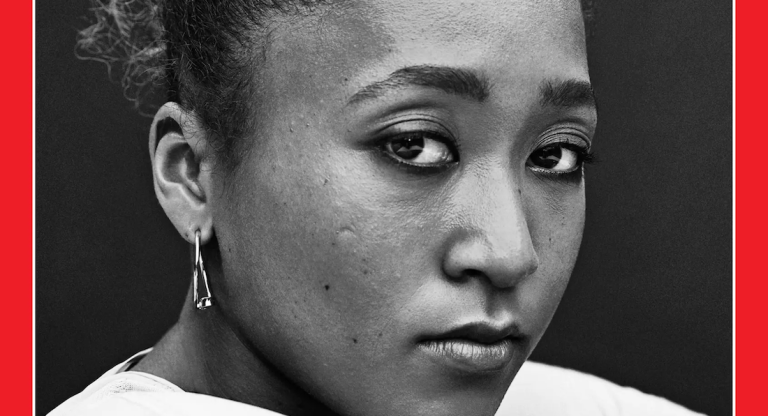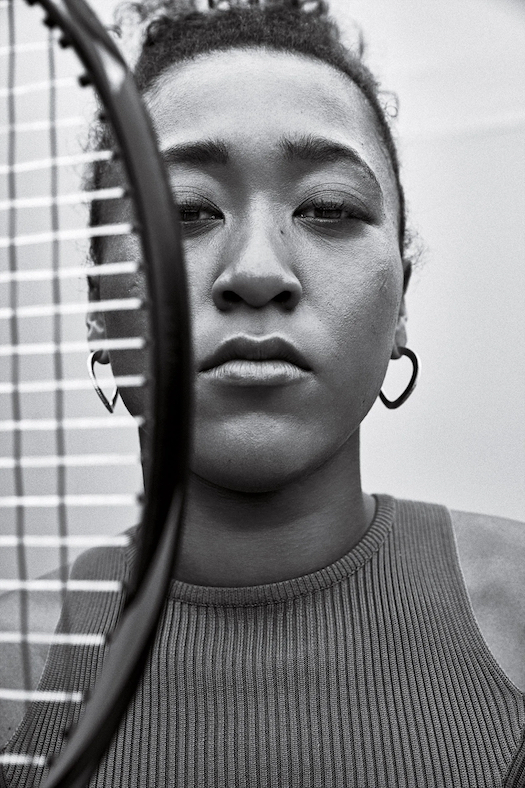

“I’ve often felt like I’m not Japanese enough, or not Black enough…”
New York, N.Y. –– In a heartfelt essay published by Time magazine in July 2021, tennis superstar Naomi Osaka broke out.
She opened up about her struggles with mental health, her decision to prioritize self-care, and the pressures of competing at the highest level.
As the world watched her light the Olympic cauldron at the Tokyo 2020 Games, Osaka’s words resonated deeply
Her searing essay offered a raw and inspiring glimpse into the mind of a champion who dared to redefine success.
Now, nearly four years later, her reflections remain a powerful testament to resilience and authenticity, inspiring a new wave of athletes and fans alike.
Osaka, a four-time Grand Slam champion, used the essay to address the criticism she faced after withdrawing from the French Open in 2021 to protect her mental well-being.
She wrote, “I felt like I was being judged for not being strong enough,” revealing the emotional toll of public scrutiny.
Her decision sparked a global conversation about mental health in sports, challenging the outdated notion that athletes must always project invincibility.
Instead, Osaka chose vulnerability, a move that has
since been lauded as courageous and groundbreaking.
The Tokyo Olympics, delayed to 2021 due to the pandemic, marked a turning point for Osaka. As a biracial Japanese athlete, she carried the weight of representing her heritage on a global stage.

In her essay, she expressed pride in her role, stating, “I’ve often felt like I’m not Japanese enough, or not Black enough, but lighting the cauldron was a moment of unity.”
Her words struck a chord with millions, highlighting the importance of identity and inclusion in sports—a message that feels even more relevant today in 2025.
Osaka’s journey didn’t end in Tokyo. After taking time away from tennis to focus on her mental health and personal growth, she returned to the court with renewed purpose.
Her essay foreshadowed this evolution, as she wrote, “I’m learning that it’s OK to not be OK.” This sentiment has become a rallying cry for athletes across disciplines, from gymnasts to swimmers, who’ve echoed her call for compassion and understanding in the face of relentless pressure.
In 2025, as mental health awareness continues to gain traction, Osaka’s influence is undeniable.
Sports organizations have implemented wellness programs, and athletes are increasingly vocal about their struggles, thanks in part to her trailblazing honesty.
Dr. Sarah Hyland, a sports psychologist, notes, “Naomi’s essay gave permission to a generation of athletes to speak up.
She shifted the narrative from weakness to strength.” This cultural shift underscores the enduring impact of Osaka’s words, penned at a time when she was just 23.
Beyond the court, Osaka has used her platform
to advocate for social justice and equity,
themes woven throughout her Time essay.
She dedicated her Olympic moment to “those who don’t always feel seen,” a nod to her activism on issues like racial equality and gender parity. Her authenticity has endeared her to fans, who see her not just as a tennis prodigy but as a relatable human being navigating life’s complexities.
As we reflect on Osaka’s essay in April 2025, it’s clear she’s more than an athlete—she’s a symbol of resilience. Her willingness to step back, reassess, and return stronger has inspired countless others to do the same.
Whether she’s competing for another Grand Slam or championing a cause, Osaka’s legacy is one of empowerment. Her Tokyo story reminds us that true victory lies not just in medals, but in the courage to be oneself.
Reflection: Naomi Osaka’s Essay Inspired Mental Health Revolution (April 10, 2025)